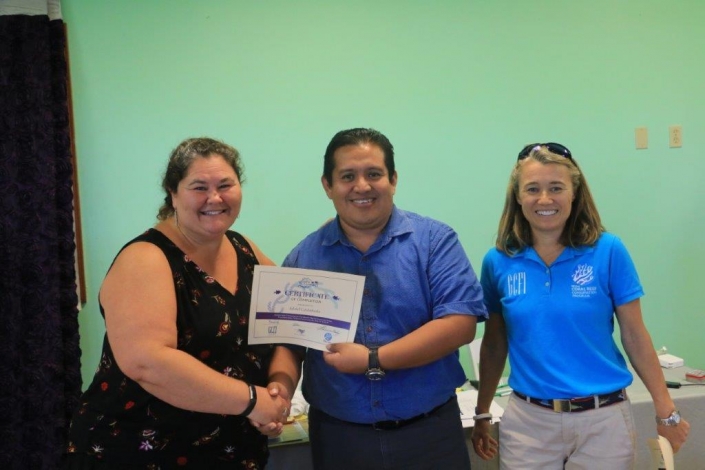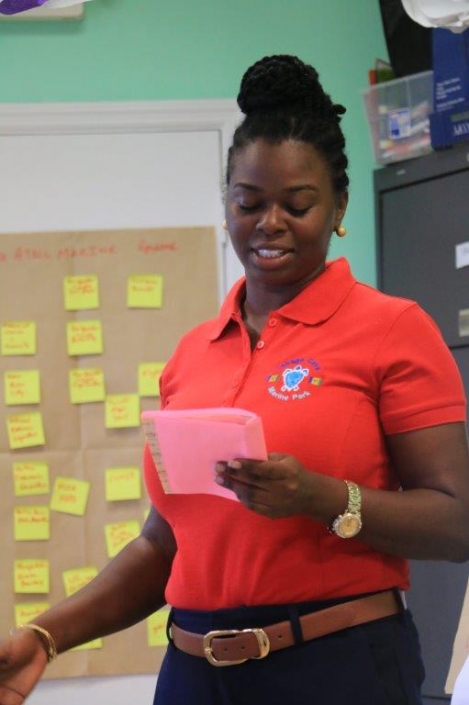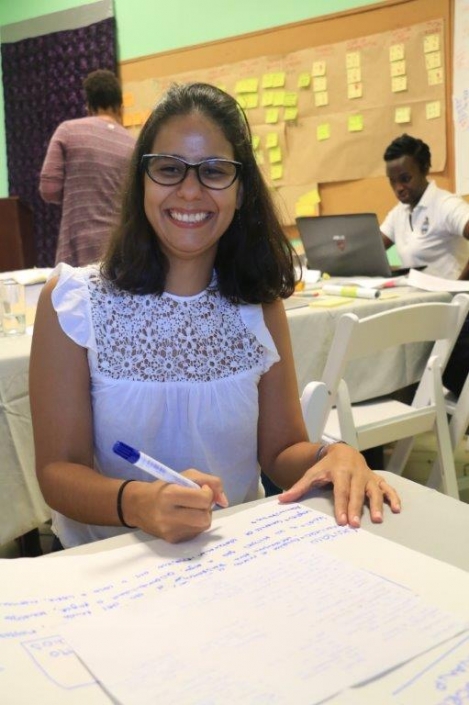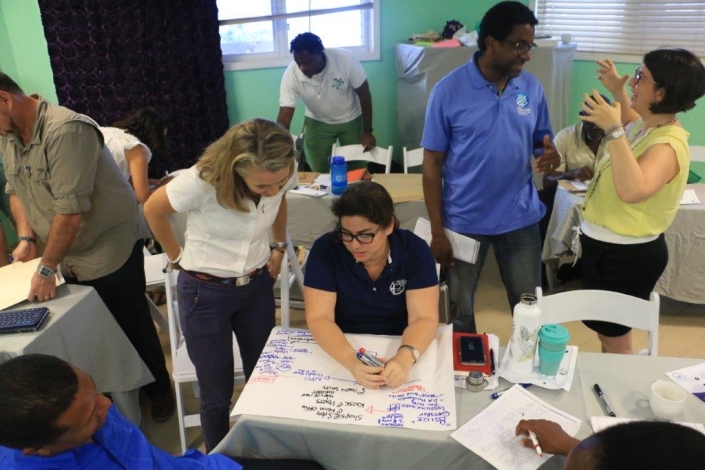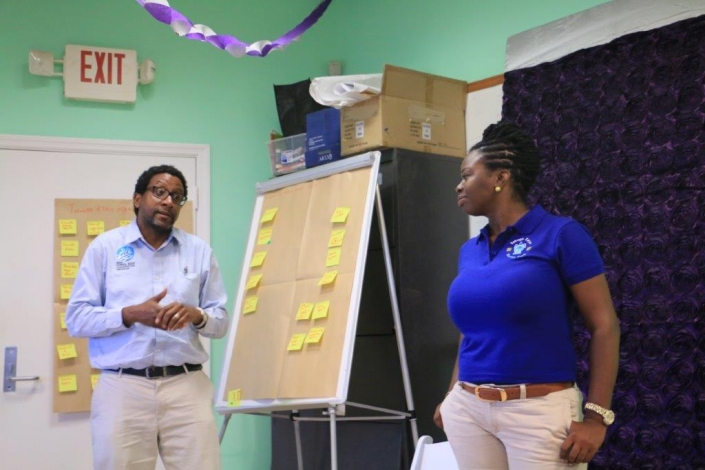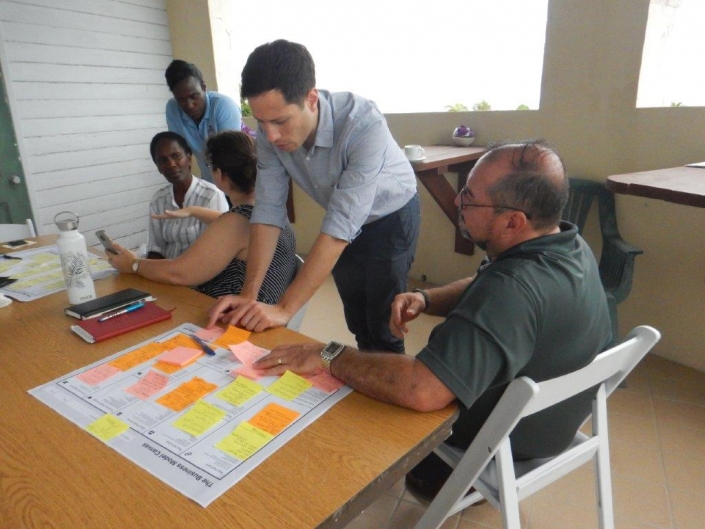Sustainable Financing
In the 2017 MPA Management Capacity Assessment, the top priority capacity building need identified by participating MPA managers was the development and implementation of sustainable finance strategies to support the achievement of coral reef conservation goals. Compared with the findings of the 2011 MPA management capacity assessment, fewer MPAs reported being at Tier 1 with no reliable sources of financing. However, there was little change in MPAs at Tier 3 that are implementing a sustainable financing plan. Despite various regional initiatives to address sustainable financing, the financing issue is still far from resolved for Caribbean MPAs.
MPAConnect’s seventh regional peer-to-peer learning exchange focused on sustainable financing for Caribbean MPAs. It was held at the National Environment Centre in Providenciales, Turks & Caicos Islands with 18 participants from nine countries and territories. The learning exchange was co-hosted by MPAConnect and the Department of Environment and Coastal Resources of the Turks & Caicos Islands.
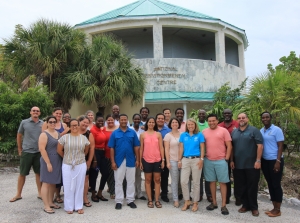
Participants in MPA financing learning exchange, Provo (Photo: A. Avenant)
MPAConnect facilitated peer-to-peer sharing about MPA managers’ experiences with sustainable financing strategies, including through volun-tourism, conservation funds, user fees, philanthropy, merchandizing and concessions from activities such as camping and ‘glamping’. MPAConnect’s financing mentor, Joe Villafranco from TIDE Belize, presented about TIDE’s approach to financial planning and TIDE’s sustainable financing strategies.
For this critical topic we called on expert guidance in protected area financing from Wolfs Company. In preparation for the learning exchange, the Wolfs team worked remotely with the participants to review their finances. When we came together in Provo, Wolfs Company presented the findings of these financial health checks to the participating MPAs. Wolfs Company then lead the group through participatory activities designed to analyze potential financing streams for each MPA. The toolkit we applied during the learning exchange included a sustainable financing questionnaire, the Eco2Fin model, the Biofin catalogue of finance solutions, a tailored rapid screening approach, an obstacle analysis, the business canvas model and a performance assessment approach linked to coral reef health monitoring.
Representatives from NOAA attended and contributed throughout the learning exchange, including presenting about payment for ecosystem services and helping to lead group work.
The learning exchange identified opportunities for follow-up assistance to the participants. The participants defined next steps for implementation of strategies to improve their MPA’s financial sustainability. Several participants desired immediate follow-up assistance with budgeting and financial planning for their MPAs. In the spirit of peer-to-peer sharing, financing mentor Joe Villafranco and the MPAConnect Coordinator worked with five Eastern Caribbean MPAs to build budgets that will best serve the MPA managers as they work to identify and implement sustainable financing strategies to support the achievement of their MPA’s management objectives.
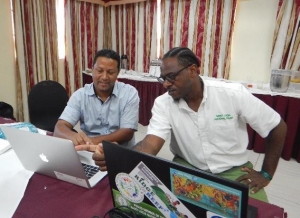
Financing mentorship, TIDE Belize-Saint Lucia National Trust (Photo: E. Doyle)
MPAConnect continues working on follow-up activities for the implementation of sustainable financing strategies. Our aim is to help the participating MPAs to take a step up in their reported tier for financing capacity in the MPA Management Capacity Assessment, to Tier 3 “A sustainable financing plan that is being implemented to provide long-term MPA financing mechanisms”.
Documents
Click here to add your own text

